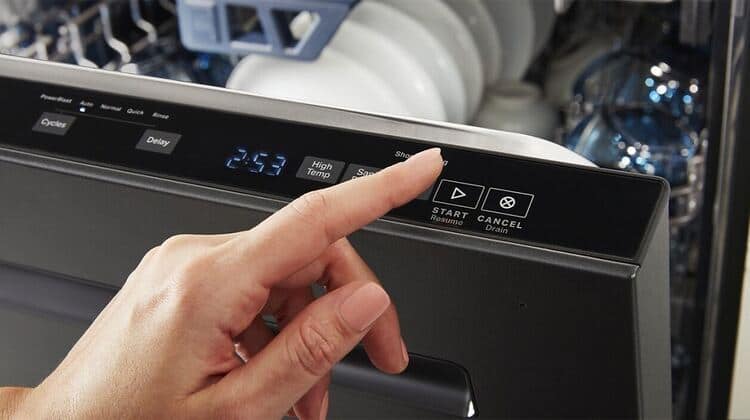Dishwashers vs. Hand-Washing: Which is Better?
When it comes to the age-old debate of dishwashers versus hand-washing, there are several factors to consider, including water usage, energy efficiency, and overall cost. Let’s delve into the details and see which option comes out on top.
Do Dishwashers Save Water Compared to Hand-Washing?
While it may seem like hand washing conserves water, the reality is that dishwashers generally use less water overall. However, the exact comparison depends on how efficiently you hand-wash your dishes.
Factors such as whether you pre-rinse dishes under a continuously running tap or use a washing-up bowl can impact water usage. Based on the Energy Saving Trust, hand-washing dishes use around 4% of household water use, on the other hand, dishwashers use just 1%.

Is a Dishwasher More Energy-Efficient Than Hand-Washing?
When used efficiently, modern dishwashers have a lower carbon footprint than hand-washing. This is because dishwashers heat water more efficiently than running a tap continuously.
Opting for a fully loaded dishwasher on an eco-cycle can reduce greenhouse gas emissions. However, if you’re running half-full loads multiple times a day or have an older, less energy-efficient dishwasher, hand-washing may be a more eco-friendly choice.
How Much Electricity Does a Dishwasher Use?
On average, dishwashers consume between 1.2 kWh and 1.5 kWh per load. Energy-efficient dishwashers with an A or B energy rating will use less electricity. The lower the kWh number, the more energy-efficient the appliance.
Are Dishwashers Expensive to Run?
The cost of running a dishwasher depends on your dishwashing habits. Running a fully loaded dishwasher should cost less than hand washing. Data from the Energy Saving Trust suggests that running a dishwasher accounts for almost 8% of electricity bills, equating to £50 to £100 annually for a standard-sized dishwasher.
How Much Does a Dishwasher Cost?
New dishwashers in the UK range from £200 to £1,600. While the initial cost may seem high, factoring in energy-saving potential and opting for a lower-priced dishwasher can make it a worthwhile investment.

How to Choose an Energy-Efficient Dishwasher
Look for dishwashers with energy ratings of A or B, as these are the most energy-efficient. Consider factors such as energy use, water consumption, noise level, and drying efficiency when choosing a dishwasher. Additionally, ensure proper loading techniques to maximize efficiency.
Top Tips for Eco-Friendly Dishwashing
Whether using a dishwasher or hand-washing, there are ways to make the process more environmentally friendly:
- Fill your dishwasher correctly to ensure optimal cleaning.
- Skip the pre-rinse step, as modern dishwashers usually don’t require it.
- Use the eco-cycle on your dishwasher for maximum energy efficiency.
- When hand-washing, use a washing-up bowl and pre-soak stubborn bits to minimize water usage and scrubbing.
Saving Money on Energy Costs
Invest in appliances with high energy ratings, such as A-rated dishwashers. Consider getting a smart meter to monitor energy usage and make adjustments accordingly. Additionally, implement small changes in energy habits to reduce overall energy bills.
In conclusion, while both dishwashers and hand-washing have their advantages and disadvantages, choosing an energy-efficient dishwasher and adopting eco-friendly practices can help minimize environmental impact and save on utility costs in the long run.


